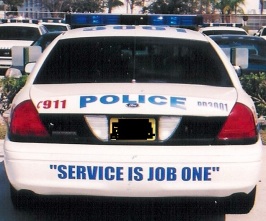Enter the Indianapolis City-County Building on a hot August day in 2012. I made it through the jury selection and was one of twelve Indianapolis residents who were going to decide the fate of the defendant that day: a young black male who had been accused of spitting on an IMPD officer. The penalty if convicted of spitting on an agent of the state? A felony, a conviction that would effectively have reverberations throughout the rest of his life, especially due to the fact that he would not only be a convicted felon, but one who also had bipolar disorder and was given to outbursts. One such outburst occurred during the sequestration of my fellow jurors and I, which unfortunately ended the proceedings that day, and led to the judge declaring mistrial.
While having the case explained to us, we were told that it would have only been a misdemeanor had he spat on a civilian who wasn’t employed by the state in a policing capacity. Hearing this, it made me think: Why are cops a protected class in this country? Why is it a felony if one spits on a cop, but not if one spits on a civilian? Surely both actions are reprehensible, disgusting, and should be dealt with in the same way. Why is it mandatory in some jurisdictions that one should receive the death penalty for the murder of a cop, but not for the murder of a civilian?
Cops are ideally of the law, not above the law. The fact that crimes against them come with stiffer penalties – and that they often receive preferential treatment in countless cases of brutality, manslaughter, and even murder – is reminiscent of the caste systems of ancient India and feudal Europe where certain classes were valued higher than others due to their service to the state.
Those who are cops have chosen to be cops. They accept the risks inherent with the job when they sign their names on the dotted line, just as those who join the military accept the risks they face. They are no different than private security guards, yet those who injure or kill security guards are not given stiffer penalties. Nor are the guards given preferential treatment if they exceed acceptable amounts of force in carrying out their duties.
This is not to say that I don’t appreciate the jobs that decent cops do. My viewpoint is that it’s wrong to value them higher than others in society due to the work they do. Every human life is sacred; what message does it send when we apply higher penalties to those who aggress against cops, or give preferential treatment to law enforcement?
If society wants to see the police as an honorable group of public servants that protects and serves, they ought to treat them as anyone else is. They should be held to the same laws that I must follow in my day-to-day life. As officers who are supposed to enforce the law and uphold the constitutions of their respective states, they’d take a giant step in becoming beholden to those statutes and documents.

